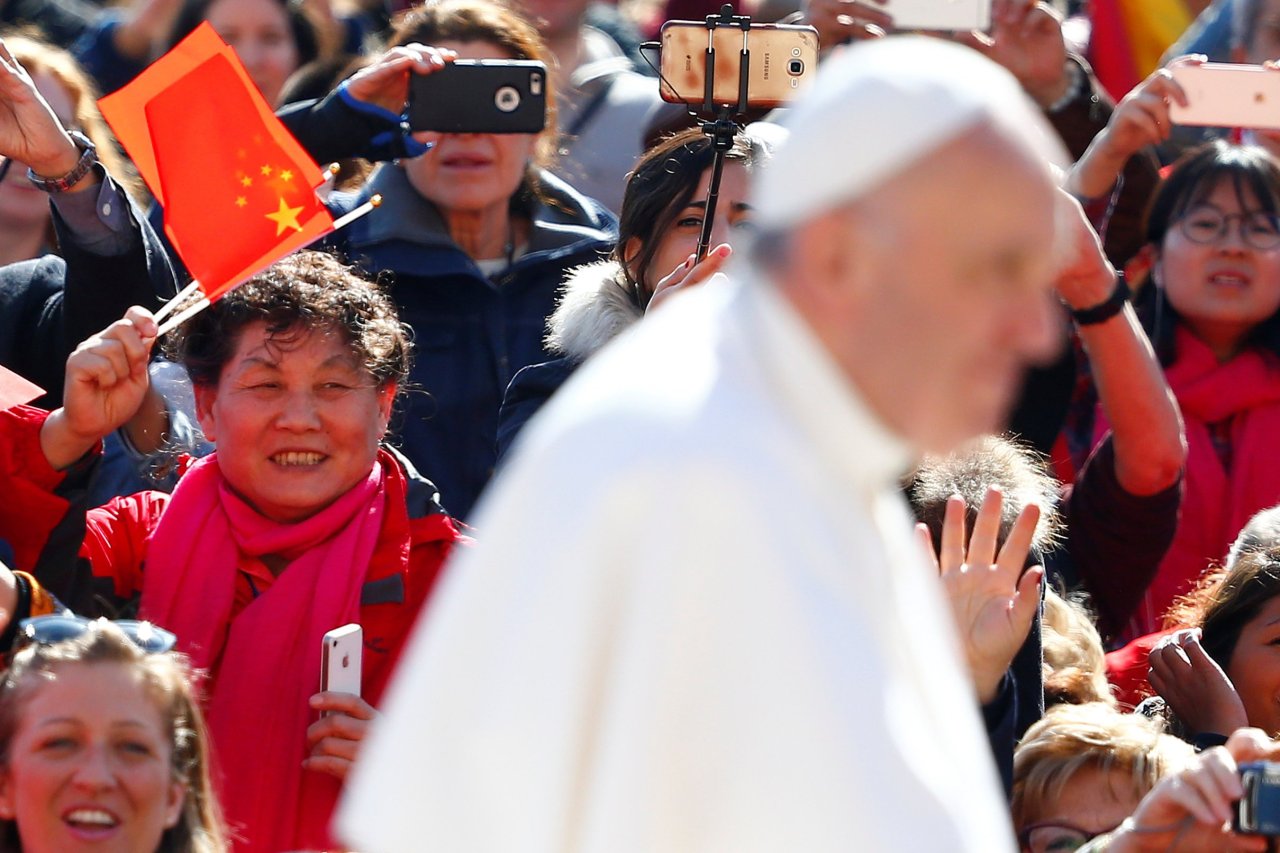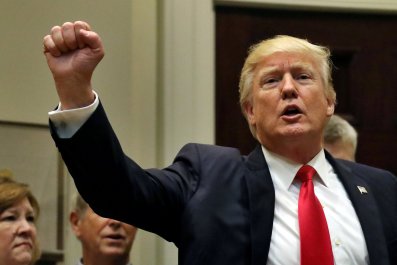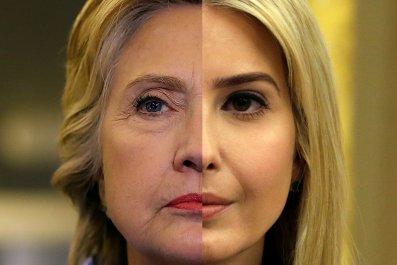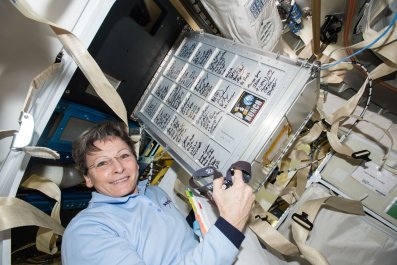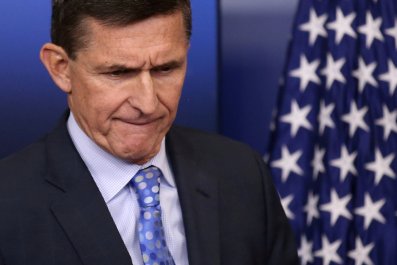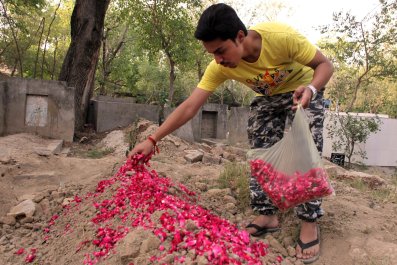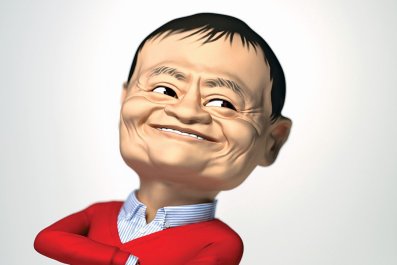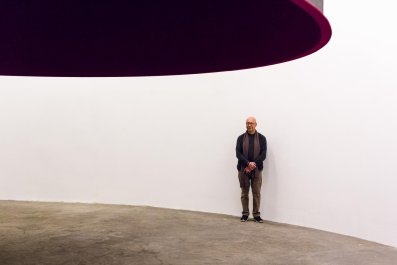As Pope Francis entered Chinese airspace on a flight to South Korea in August 2014, he sent a note to Chinese President Xi Jinping: "I extend best wishes to your excellency and your fellow citizens, and I invoke the divine blessings of peace and well-being upon the nation."
With that message, the pope broke 63 years of silence between the Vatican and the Chinese government, dating back to when Mao Zedong's Communist Party expelled the last Vatican diplomat from Beijing, in 1951. And now, after more than two years of negotiations, China and the Roman Catholic Church are nearing a historic deal to re-establish ties through a unified Catholic Church in China —and possibly even a formal diplomatic relationship.
"I think it can happen anytime soon. It may be in the first half of this year if not before the end of this year," says Victor Gao, a leading foreign policy analyst in Beijing and a former interpreter for former Chinese leader Deng Xiaoping. "For the Vatican, it will be a good move, because China already has many Catholics, and the potential for more is huge. For China, it will reinforce a message of tolerance and freedom of religion."
In February, Hong Kong's bishop, John Cardinal Tong Hon, announced the preliminary details of the agreement in the Sunday Examiner, the English-language newspaper run by the Hong Kong Catholic diocese. Once finalized, it would give the pope ultimate authority in the selection of China's Catholic bishops, an essential step toward creating a unified Catholic Church recognized by both the Vatican and the Chinese government .
Details are still to be worked out, and lingering disagreements—the two sides haven't reached consensus over the church's right to establish schools, proselytize or own property in China—but Tong argued that these differences should not prevent the rapprochement. "The moral principle of the Church," he wrote, "teaches us to choose the lesser of two evils."
Such a deal would transform the lives of China's Catholics, conservatively estimated at around 10 million, who would no longer have to make the uneasy choice between a church sanctioned by Beijing but shunned by the Vatican or an underground church loyal to the Holy See that operates in a legal gray zone. And if China's experiment with the Catholic Church goes well, it could lead to further freedom for the hundreds of millions of Chinese who practice some form of organized religion. TJ, a 29-year-old Catholic who works for a state-owned enterprise in Beijing, is hopeful. (He wouldn't give his real name for fear of reprisal for commenting publicly on a politically sensitive issue in China.) "As a Catholic Christian, I am excited," he says. "I really hope Pope Francis can visit China as soon as possible."
An alliance between 1.4 billion Chinese and the world's 1.2 billion Catholics is also likely to have an impact far beyond China's borders —not least because of the two world leaders it would bring together. For Francis, who has been rehabilitating the church's image around the world, an alliance with Xi could allow them to fight world poverty and climate change together, at a time when the pope's relationship with U.S. President Donald Trump is strained. (In February, Trump insulted the pope, calling his comments about Trump's religious faith "disgraceful".) For Xi, an association with the popular pontiff could elevate China's moral stature as America's seems to be receding.
China Has a Prayer
The Vatican is the only Western state that doesn't have diplomatic ties with China. It closed its embassy in Beijing in 1951 and reopened it in Taipei, Taiwan, after the Communist Party began purging China of organized religion, particularly ones imported by the West.
But in the years since, China has slowly relaxed its ban on the pious. The Communist Party's restrictions remain: None of its almost 90 million members are permitted to practice a spiritual faith . But as part of the economic reforms in the 1970s, the country's constitution guaranteed in 1978 that Chinese citizens could "enjoy freedom of religious belief" and protected them from discrimination.
Recognizing the opportunity to reconnect with China, Francis has made a series of public overtures, starting with that message he sent Xi from his jet. In September 2015, the pope and Xi both spoke at the U.N. General Assembly. It was clear from their speeches that they had a lot in common, says Mogens Lykketoft, a former Danish foreign minister, and president of the General Assembly session, who introduced them to the stage. "You could say…these two great leaders of very different kind of movements converged in the understanding of very, very essential issues on the global future…to face the problems of climate change, sustainability and poverty."
More than a year later, in January 2017, Francis told the Spanish daily El País that he would visit China "as soon as they send me an invitation," then defended China's position on religion with a controversial statement: "In China, the churches are packed. In China they can worship freely."
The next month, the Vatican faced further criticism for its softening stance toward China when it invited professor Huang Jiefu, a highly regarded former Chinese vice minister of health, to speak at the Vatican's organ-trafficking conference, a decision ethicists criticized, citing China's practice of harvesting organs from executed prisoners.
Experts say there are many reasons the pope has pursued China so doggedly. He faces mounting opposition from conservative factions within the Catholic Church, led by Raymond Cardinal Burke. (Burke reportedly met with White House Chief Strategist Steve Bannon, though Burke is quoted in Infovaticana, a conservative blog about the Catholic Church, saying he does not remember the meeting.) Hard-liners are unhappy with the pope's liberal leanings, including his condemnation of child abuse committed by priests, as well as a relatively relaxed approach toward divorce and the LGBT community. Forging a relationship with China allows the pope to build his global role, despite his domestic problems. Developing a presence in China might also help Catholics compete with Protestants, who have many times more worshippers in China.
Some Catholics familiar with the pope's interest in China say it has nothing to do with conversion, which would be unpopular with the Chinese. They say the pontiff is interested in how diplomacy with China can help him tackle problems like poverty, climate change and the crisis in Syria. "He is interested in world peace," says Francesco Sisci, a Beijing-based Italian journalist who has interviewed Francis. "He is not interested in converting people, like keeping a record of how many new baptisms priests get per month. He's telling his own priests, 'Don't try to convert anybody' by proselytizing."
Pushing Hard for Soft Power
No pope has ever visited mainland China, but the recent negotiations that seem to be leading to a diplomatic relationship would likely change that. Beijing has taken a concrete step forward by ordaining two bishops in Sichuan and Shanxi provinces, who are recognized not only by the Chinese Patriotic Catholic Association but, in a twist, also by the Vatican.
Xi has reasons to pursue a relationship with the Vatican . He has been trying to improve his country's moral standing in the world through initiatives like the campaign he announced in March to lift 10 million Chinese villagers out of poverty this year. He has also been building up China's peacekeeping force to become one of the largest in the U.N. and has become a global leader on addressing climate change.
The Reverend Jim Mulroney, deputy editor-in-chief of the Sunday Examiner , says the Chinese are working with the pope to increase their global clout. "I think what they're interested in is soft power," he says.
Beyond making the Chinese look better on the question of religious freedom, the pontiff can prove a strong diplomatic partner for them. He has brokered major diplomatic wins, including the end to U.S. sanctions on Cuba. He has also sent aid to eastern Ukraine and appealed directly to Syrian President Bashar al-Assad, while using Vatican property to provide shelter to refugees from that country's civil war.
If China is interested in moral authority, Francis is an appealing ally, something Xi would have noticed at the U.N. General Assembly. While adoring crowds mobbed the pontiff, news coverage on Xi was relatively muted. "[The pope] has got — to put it very bluntly — a large audience. He's in touch on a direct telephone line with a lot of people," says Mette Holm, a broadcaster and journalist who lived in China during the reforms of the early '80s and was in New York that week. "A lot of countries can agree [that] the way China treats religion is not very sophisticated. So they have a lot to gain in the way of reputation."
Poaching Allies
The global implications of a collaborative relationship between Xi and Francis—and by extension, China and the Vatican—are potentially seismic. Most immediately, it could be catastrophic for Taiwan. If China and the Vatican establish diplomatic relations, the Vatican would be forced to stop recognizing Taiwan, depriving it of its only European ally.
This couldn't come at a worse time for Taiwan, which has been losing diplomatic allies to China — most recently in March 2016, when Gambia announced it had switched diplomatic allegiance from Taipei to Beijing. Taiwan is recognized by only 21 sovereign states, a number it has maintained under an agreement that China would not poach Taiwan's remaining allies as long as Taiwan did not call for independence.
But that détente was imperiled after Taiwan's pro-independence president, Tsai Ing-wen, called to congratulate President-elect Trump, reportedly the first time a Taiwanese leader has spoken to a president or president-elect since the late 1970s. Afterward, Trump called into question Beijing's long-standing "One China" policy, a cornerstone of the Sino-U.S. relationship since 1979. "That's when [China] said, 'OK, that's it, we're going to go after each and every diplomatic ally that Taiwan has,'" says Jorge Guajardo, Mexico's ambassador to China from 2007 to 2013. A few weeks after the call, the African islands São Tomé and Príncipe unexpectedly switched ties from Taiwan to China.
Now it appears China is going after Catholic-majority countries in South America that still recognize Taiwan. Guajardo confirmed to Newsweek that Nicaragua, Paraguay and the Dominican Republic have tried to engage China to establish diplomatic ties.
That process would accelerate, of course, if the pope and the Vatican grow closer. "A state visit by the pope [to China] brings a lot of symbolism to it," says Guajardo. "For China to score that coup and to actually say that the Vatican has switched over [from Taiwan]…that would be just unimaginable in the message it would send around the world for China's legitimacy as a world player."
But China's relationship with Taiwan is merely the sideshow. The opportunity here is to create an unprecedented partnership between the most populous communist state and the largest Christian church—and in doing so, bring 2.6 billion people together from every corner of the globe.



